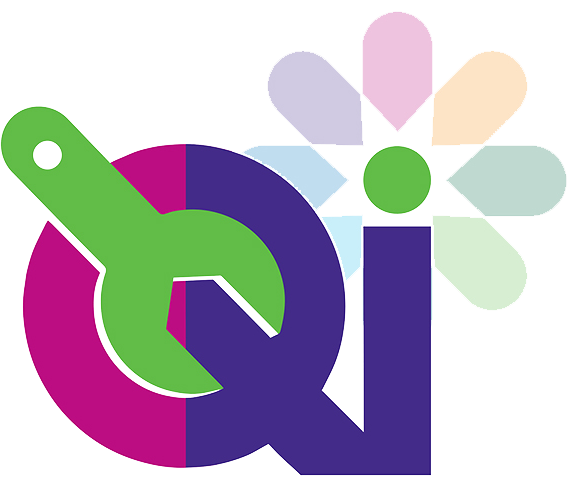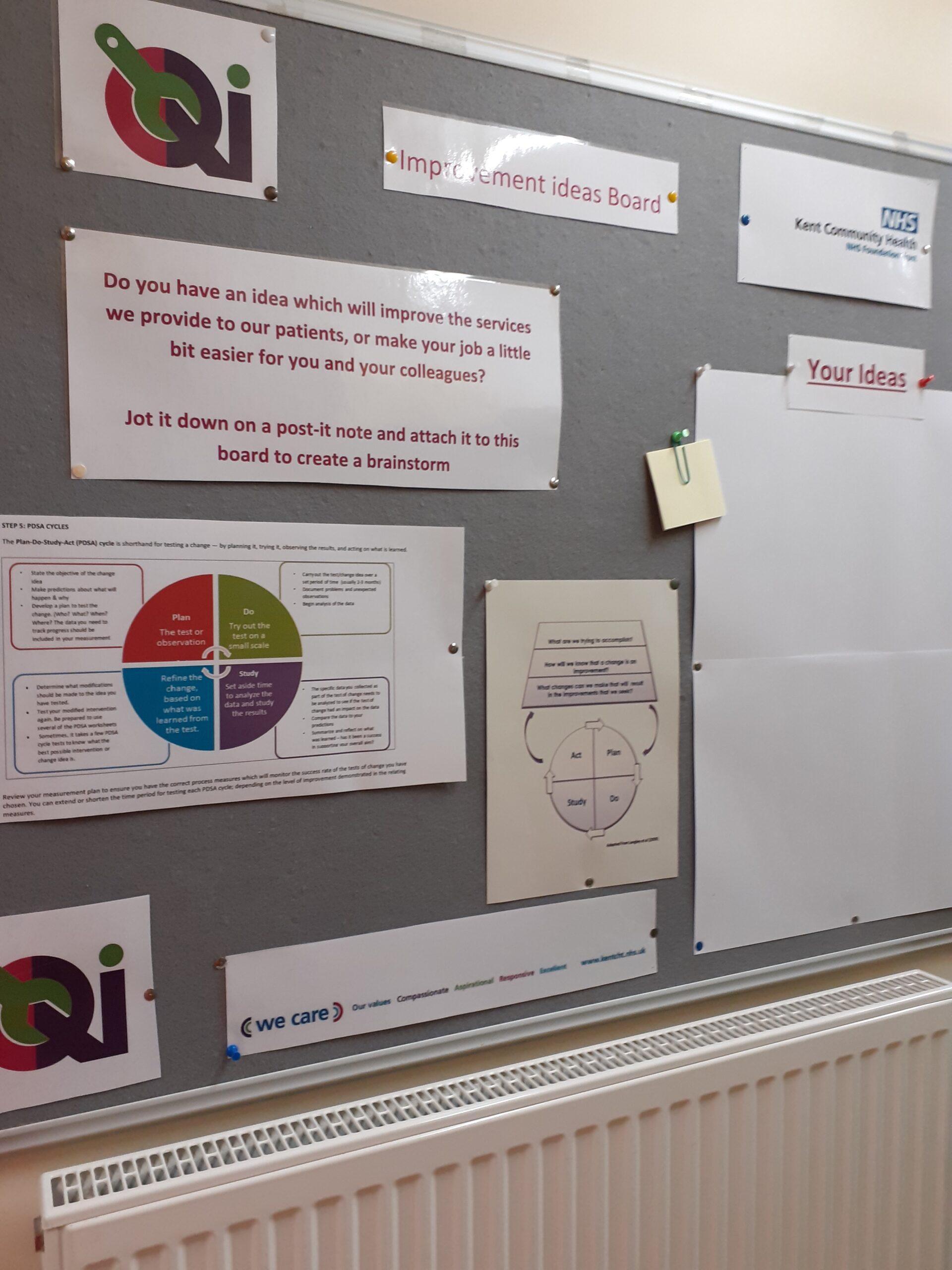A quick and simple idea has been implemented within the sexual health service at Kent Community Health NHS Foundation Trust (KCHFT), which is aimed at making improvements for patients and colleagues.
Whiteboards have been put up in staff rooms, where colleagues can write their improvement ideas. Colleagues can write ideas and tips straight onto the board or simply stick a note on.
Within days of going up, ideas were added to the board. One suggested a new triage system remains in place post COVID-19. Another idea is to see if receptionists could give patients bagged and labelled medication, rather than a nurse having to leave a clinic or consultation room to do so.
Stephen Grice, Head of Sexual Health Services, said: “The whiteboards were a really good idea. At first colleagues needed a bit of encouragement to write something, often no-one likes being the first person to do something. So we put up an idea we had heard people talking about it and that started the flow.”
The improvement ideas boards were the idea of Sarajane Poole, Head of Quality, Governance and Professional Standards for Public Health, Children’s Specialist and Adult Learning Disabilities and Quality Improvement (QI) Advisor Kayleigh Hartshorn.
The boards have gone up at The Gate clinic, which is within the grounds of Kent and Canterbury Hospital and at Clover Street clinic in Chatham.
Kayleigh said: “We asked our sexual health service if they would be willing to trial the boards, putting them up in staff rooms. The boards are being used to capture ideas. They were used while various colleagues were temporarily moved to support others on the frontline, as part of our during COVID-19 response, and as colleagues returned to their usual roles. They continue to be used as we look at resetting and reimagining the way we provide our services.”
The new triage system, the sexual health service introduced at the start of the COVID-19 UK lockdown, sees patients phoning up in the first instance, rather than walking into clinics and waiting to be seen. This change was made to help make sure the service could continue to offer help and advice.
As many patients used to turn up at the same time, often first thing in the morning, they could sometimes experience three hour waiting times. Average response times with the phone triage system was 25 minutes when it was first seeing the number of phone calls rise from an average of 750 a week to 1,500 during the last week of July (2020).
Stephen said: “This might have been a bit of a blip. We are continually looking at the data, so we can decide the best way forward.”
Another idea posted on the board was a suggestion that reception staff hand out bagged and labelled medication to patients, rather than nurses having to leave clinics to do this. The Sexual Health Service is working closely with pharmacy colleagues to see if this could be possible.
Leah Elliott, Sexual Health Programme Manager and Quality, Service Improvement and Redesign (QSIR) Practitioner, said: “As we look at resetting and reimagining our service, the sexual health service is encouraging teams to share service improvement ideas and build on new innovation ideas.”
For more about other changes the sexual health service at KCHFT has made during the COVID-19 pandemic, see the KCHFT website.
If you would like an improvement ideas board template, please contact the QI team.


